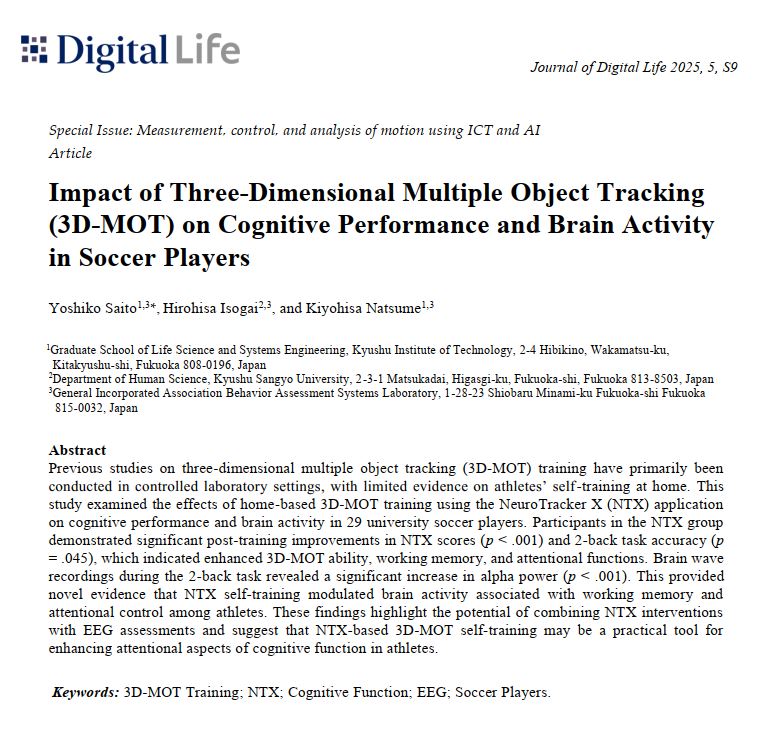Welcome to the Research and Strategy Services at in today's fast-paced.


When it comes to cognitive training, recognizing the industry’s leaders is not always evident. True cognitive training role models, however, stand out due to their quality of science and how they train people.
In a recent study, a group of sports scientists put different perceptual-cognitive training interventions to the test. A clear finding emerged; that not all cognitive training programs are created equal.
Cognitive training is often discussed in terms of improving mental functions such as attention control, information processing, and decision-making. In high-performance environments, an important factor is the ability to maintain stable attention as task demands accumulate over time — a capacity sometimes described as attention endurance in elite rally preparation.
In the study, Dr. Zentgraf and his team conducted a meta-review of studies in perceptual-cognitive training in sports. The aim of the review, carried out at the Institute for Sport and Exercise Sciences in Germany, was to evaluate the effectiveness of perceptual-cognitive training interventions with professional athletes.
The researchers explained that in interactive sports there are a couple of key factors that equate performance success. One, perceiving and predicting the motion of the ball, and actions of teammates and opponents is paramount. Two, is the need to execute the correct action based on those perceptions and predictions.
Sports science research shows that perceptual-cognitive abilities play a major role in differentiating elite athletes from amateurs. Findings have revealed that this is even more so the case in team sports.
Under rigorous benchmarks for methodological quality, the researchers narrowed down 16 perceptual-cognitive training studies from an initial total of 1,692. Two NeuroTracker studies were selected from the sixteen, with one of these being the only study to have an ideal sample size of athletes. All of the studies were then evaluated by four independent expert reviewers. They examined the studies for evidence of training and transfer effects, according to strict criteria.
The main goal of the review was to see if evidence of ‘far transfer’ existed. In other words, if training on the perceptual-cognitive task could lead to an improvement in abilities that were very different from the training itself. An example of ‘far transfer’, for instance, could be if an individual starts playing chess and consequently improves his or her mathematical reasoning abilities.
In the study, the researchers referred to ‘far transfer’ as ‘the gold-standard’ and ‘key consideration for the relevance of perceptual-cognitive training in sports.’ They also identified the problem that, ‘transfer, be it near, further or far, is mostly not studied empirically.’
Around 60% of the studies showed off-court performance in tests similar to the training activity (near transfer). This included both NeuroTracker studies. When it came to ‘far transfer,’ only 3 studies qualified for review, and two conclusively showed no transfer effect. The remaining study was with NeuroTracker, which ‘showed a reliable positive effect’ – a 15% improvement in passing accuracy in competitive soccer play.
Other recent meta-reviews have revealed that there is often an absence of far transfer in sports, which also includes novice athlete populations. In this context, NeuroTracker is leading the Holy Grail in cognitive sports science research.
In addition, NeuroTracker’s soccer study also puts into question previously held beliefs of positive transfer in interactive sports. A common belief is that for positive transfer to occur, practice conditions should closely recreate key situations of sports performance. For instance, let’s imagine that basketball players practice shooting 3-pointers. Positive transfer would occur if they successfully shoot a 3-pointer in a competitive game, thanks to all that practice.
The researchers suggested, however, that the NeuroTracker soccer study may provide evidence to the contrary. Namely that effective training does not necessarily need a high degree of task similarity to in-game performance. NeuroTracker, for example, uses a 3D multiple-object training method to increase decision-making abilities.
As previously mentioned, NeuroTracker training improved passing decision-making accuracy in soccer players. Consequently, NeuroTracker research is not only setting the standard for evidence-based far-transfer, but also may be defining the boundaries of training athletic performance.







Welcome to the Research and Strategy Services at in today's fast-paced.

Standardized testing environments combine predefined formats and time limits that narrow how knowledge can be expressed. This interpretive guide help to distinguish structural constraint from reduced cognitive capacity.

Divided attention demands can alter performance through multiple processing streams rather than reducing cognitive capacity. This article interprets how to distinguish structural allocation from diminished ability under environmental constraint.

Reduced action range can alter performance by narrowing what can be physically or perceptually executed rather than diminishing cognitive ability. This article interprets how to distinguishing structural boundaries from capacity limitation.
.png)